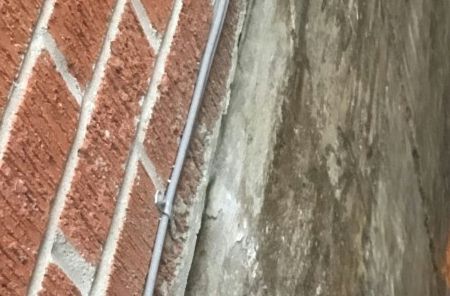This is why a foundation inspection is important, whether you own a house or you are considering to buy one. The problem is that the inspection is not a straightforward process, and it will require the help of a professional to perform properly. This article will illustrate the foundation inspection process.
Contents
What is Foundation Inspection?
A foundation inspection is done to evaluate the foundation, the base where any infrastructure stands. Different kinds of foundation systems are used for houses, depending on factors such as the type of house constructed and the overall stability of the ground. The inspection is done to check the integrity of the foundation and to check if there are any issues that can weaken it. In some countries and states, foundation inspection by a qualified professional is required. However, even if it is not required, it is highly recommended for house buyers to avail this service before completing a purchase.
When is foundation inspection necessary?
A foundation inspection is performed for a wide variety of reasons, all of which is necessary for the homeowner’s peace of mind. Here are some examples when an inspection is necessary.
- When it is mandated by law – In some countries and states, it is required by law to have a foundation inspection before completing a property purchase. One of the most common reasons for failed real estate investment is a property that is standing on a weakened or substandard foundation. It is also considered as a major safety concern. Those are some of the reasons why some countries require such an inspection.
- When purchasing a new house – A foundation inspection is one of the most important things you should avail before purchasing a new house. It is recommended by basically everyone in the real estate business because of safety concerns. Also, you won’t like to spend more than the sticker price because a damaged foundation will require significant repairs. Do due diligence and get a foundation inspection done before purchasing a house.
- When getting home maintenance or renovation – When your house is scheduled for maintenance or repairs, it is recommended that you also get a foundation inspection. Since you will be evaluating the overall condition of your home anyway, it will be nice to include the ground in which your house stands as part of the evaluation. As mentioned earlier, a weakened foundation is a major red flag for all properties. It is best to detect foundation issues early and make necessary adjustments before it’s too late.
- When suspecting foundation damage – An inspection is required if your house is showing signs of damage to its foundation. Signs of foundation damage include cracks in the walls and floors, imbalances on the surface, fissures in the ground, and penetration of water in the absence of other possible causes. If these signs are present, it is highly recommended to get your foundation inspected.
Foundation inspections should only be done by trained professionals because they know all of the warning signs that they should look for. For best results, it is recommended that a foundation inspection should be done by a licensed structural engineer. They are trained to perform structural evaluations such as this one, and they can advise you on what to do next in case they find the early signs of deterioration. It may be more expensive, but it pays to be accurate for such an important process.
How is a foundation inspection done?
A foundation inspection is a multi-step process. Each step is relevant in fully evaluating the integrity of your property’s foundation. Make sure that your inspector performs all of these steps for your maximum confidence.
1. Pre-inspection interview – A pre-inspection interview is performed to provide proper context to the inspection. This is to provide the inspector details of the house’s history. They will ask about the house’s maintenance and repair history, as well as details of any damage present. The inspector should get as much data as possible from the interview to help them better evaluate the condition of the house.
2. Interior and exterior examination – The inspector checks both the inside and outside of the house to see if there are any signs of foundational damage. For the exterior examination, signs of damage such as cracks and crumbling are noted. The condition of walls, drainage system, and plumbing is also checked. For the interior examination, both the walls and floors are evaluated for damage. The condition of weight-bearing parts such as support beams are checked, and the fit of doors and windows are evaluated.
3. Floor inspection – The floor is the best place to check for any problems in the foundation. Basic inspection includes checking for cracks, fissures, leaks, and other signs of damage or weakness. The levelness of the floor is also carefully evaluated. Signs they look out for include the alignment of furniture and any signs of leaning or listing on the walls. Unevenness or any irregular elevation or depression at any point of the floor can be a sign of foundation damage or weakness.
4. Analysis and interpretation – If any defect is found in the house, the inspector will try and evaluate the possible cause of such defect. The inspector will try to determine if the damage is caused by a foundational or non-foundational problem. If it was determined that the problem is due to irregularities in the foundation, the inspector would investigate for possible causes such as drainage problems, structural instability, or poor ground conditions. After the inspection is completed, the inspector will explain his/her findings and provide recommendations.
The foundation inspection is one of the most important steps in evaluating the condition of any house. Whether you own a house or you are looking to acquire one, you must perform this to ensure both the safety of future occupants and the value of your investment.


